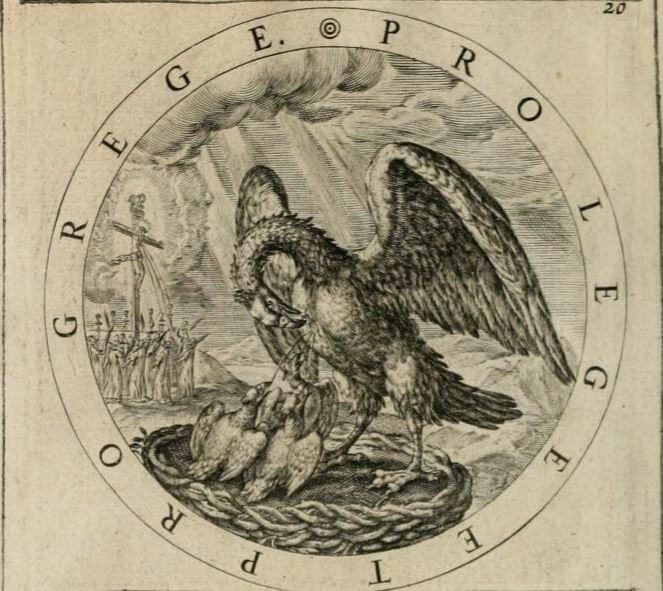The Genealogies of Modernity Journal
Secular Sacraments
Bypassing the quadrille of courtship, Joukovsky repurposes the marriage plot as a witty, unsparing dissection of human vanity and a quasi-sociological look at the mores of America’s de facto aristocracy.
Trevor Merrill reviews A. Natasha Joukovsky’s sparkling, multifaceted debut novel, The Portrait of a Mirror
Demons of the Green World: From Caliban to Anthony Blanche
In remaining unknown, in speaking from the eccentric radicality of their own linguistic-ontological complexes, Caliban and Anthony become the voices of aesthetic criticism within their worlds.
Daniel Fitzpatrick on critique from margins
Art Museums and the Modern Imaginary
Presentism is an obsession with the present that forgets its relationship with the past, that covers history and humanity with a blanket of generic sameness that muffles difference and dulls memory.
Donato Loia reviews Charles Saumarez Smith’s The Art Museum in Modern Times
Complaining about Incarceration
The notion that the people suffering from mass incarceration could testify truthfully about the system’s horrors was, and still often is, contentious. . . . Even more controversial: the idea that incarcerated people can critically analyze their position.
Luke Fidler on complaint and justice in prison
Death with Dignity
We are not isolated individuals… We are social creatures dependent on one another. If our life has an enormous social element, might not our death likewise?
Jeffrey Wald considers death in Christopher Beha’s What Happened to Sophie Wilder
The Music World Needs Haydn
Haydn condenses whole universes into his symphonies. Emphasizing his folkishness at the expense of his elegance, his grace over his passion, his control over his weirdness is a disservice to the world.
Jacob Martin on Haydn and renewing orchestral music
Shakespeare on the Theological Origins of Modernity
All of these restorations in “Richard III” are contingent upon the reinstatement of sincere eucharistic participation—Holy Communion . . . where rituals are revivified, and where communion—real Communion—can materialize.
Daniel Zimmerman finds a counter-modern theology in William Shakespeare
Racializing Art: A Baleful Genealogy
It is no longer possible to ignore or undersell the impact that racialized and overtly white supremacist ideas have had on art history.
Christopher Nygren reviews Éric Michaud’s Barbarian Invasions
Wendell Berry’s Genealogy of Place
To be connected to a place, to a genealogy, to a community, to a person, requires unconditional love, God’s love; only in this can modernity find what it is truly looking for.
John-Paul Heil reads Hannah Coulter and finds a genealogy of place and, ultimately, love
Power Made Perfect in Weakness
Marked by the Spirit with that indelible birthmark, as the Priest wanders, he wanders towards God instead of away. Perhaps Graham Graham too felt this relentless pursuit as an agnostic Catholic, felt the pull of a God who will not let you go.
Shemaiah Gonzalez on a literary saint for modern times
A Vocation to Heal: On Medicine and Morality
Physicians must acknowledge that our wellness comes from embracing our authentic identity, not from a pursuit of individual happiness. The great challenge that lies before us is not so much to heal humanity or to heal ourselves, but rather a renewal of the search for our lost communion.
Michael McCarthy on Walker Percy, medicine, and service of others
Misdiagnosing Shakespearean Modernism
These Shakespeareans wish to see the playwright as a progenitor of their own project of exposure, disenchantment, and social critique. Their readings contort the histories to make them accord with modern sensibilities.
Daniel Zimmerman on making a modern out of Shakespeare
In the Ruins of Literary Postmodernity
Friendship with God—it is a laughable postmodern literary idea. But for post-postmodernity, is there anything worth pursuing more?
Jeffrey Wald reviews books by Catholic writers Joshua Wren and Trevor Merrill
Keeping the Rhythm
Lexi Eikelboom argues, in a new way, that theology always begins from these most ordinary places, driving us deeper into such moments instead of out and away from them.
Lyle Enright explores the impact of taking rhythm seriously
Get Rhythm
This back-and-forth will grow and stretch and change and, somehow, we will recognize that we have been caught up together in another, greater boundedness all along.
Lyle Enright reviews Lexi Eikelboom’s Rhythm: A Theological Category
A Rake's Progress Through Operatic History
Toeing the line between sincere homage and raucous parody, The Rake’s Progress is a complex opera, one that evinces sincere ambivalence toward its source material, but above all, delight.
Jacob Martin reviews a transhistorical operatic masterpiece
Enchantment Remains: On Baseball and Modernity
The old ways have not died. Enchantment remains. The very soul of baseball seems up for grabs, with mystery, enchantment, and superstition on the one hand, and science, disenchantment, and statistics on the other.
Jeffrey Waldon on Christopher Beha’s The Index of Self-Destructive Acts
Aiming for Japan and Getting Heaven Thrown In
In the parallel spiritual journeys of its characters, Endo’s The Samurai reflects a typically postmodern yearning for transcendence and synthesis of values beyond the conflict of cultures.
Katy Carl on Shūsaku Endō’s The Samurai and finding transcendence beyond the postmodern
Action Movies and the Ethics of Climate Malthusianism
Three recent action films—Kingsman: Secret Service, Avengers: Infinity War, and Tenet—face down climate change by pointing to a supposedly new threat: a new crop of Malthusians, out to exterminate parts of the human race for the greater good.
Brice Ezell on the persistence of a bad idea.
Hagia Sophia as a Living Event Space
What is remarkable about Hagia Sophia’s transformations is the ways in which it was architecturally transformed in line with the politico-spatial turning points in the region’s history… These architectural changes have the power to reinforce, and even ignite, historical change.
Emre Çetin Gürer maps the space of historical change in the Hagia Sophia























